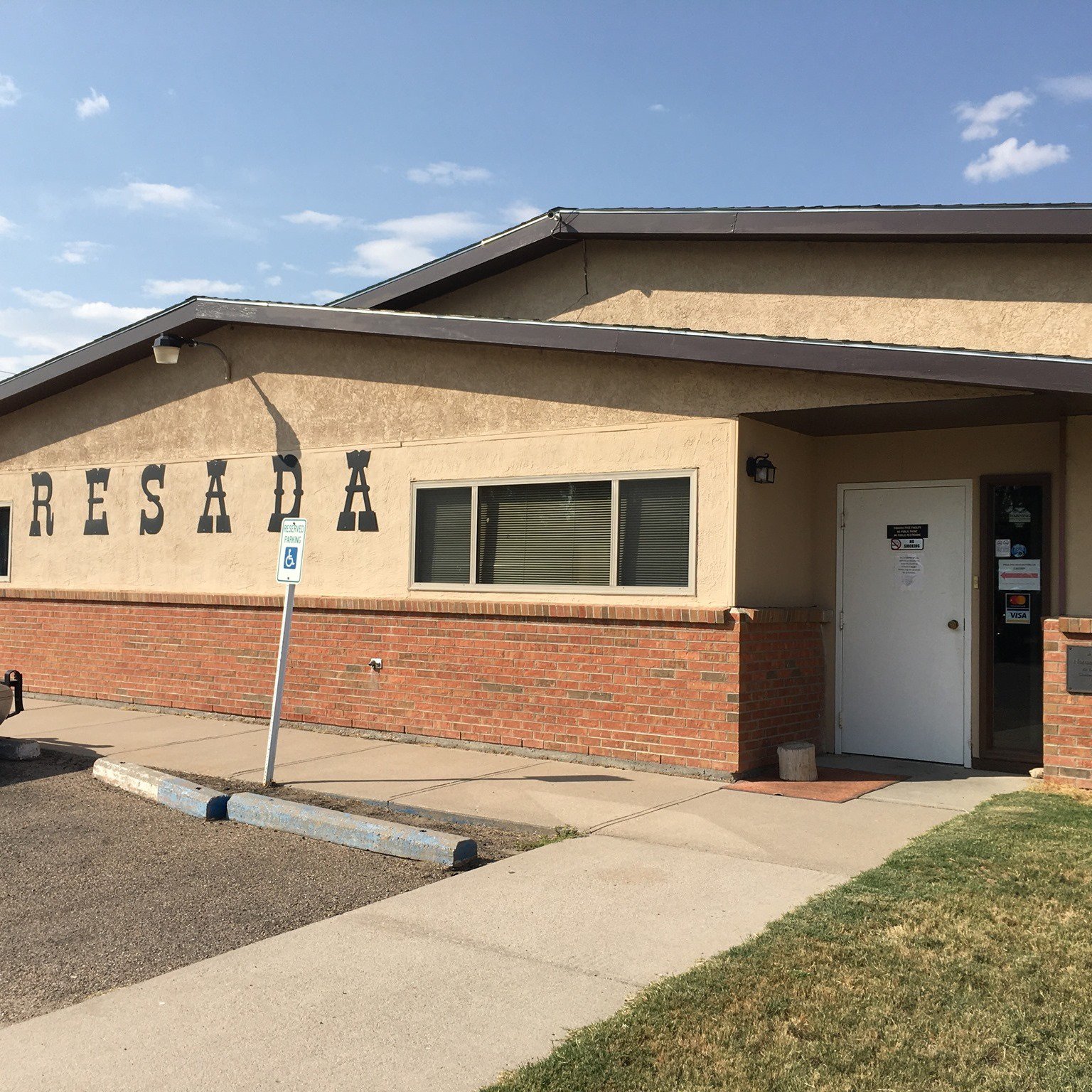This center is an excellent help for the veterans, I feel so blessed to be part of this program, the staff has a great heart, they believe in the patients and strive to help them to get their recovery. I'm very thankful to God to allow me to meet this place and be part of it ...
About Colorado Coalition for the Homeless
The Fort Lyon Supportive Residential Community offers peer based transitional housing with 250 beds in Las Animas within Bent County, Colorado. This program was created to reuse the former Fort Lyon VA Hospital site. They assist underserved populations like the homeless or those with substance use disorders. They partner with many local and state agencies.
The facility is a sprawling open campus in a rural setting about three miles northeast of downtown Las Animas and four miles north of Boggsville Historic Site. The Arkansas River provides scenic views and outdoor recreational opportunities for residents. The campus also boasts 552 acres of outdoor walking space and bicycle checkout, gymnasium, and weight room for indoor recreation. There’s an onsite library and a creativity center.
Women and men are assigned to different buildings. Each building boasts a common area, quiet rooms, and laundry and bathroom facilities. Residents are provided bedding & clothing, hygiene supplies and laundry detergent.
Integrated Recovery-Oriented Housing Solutions
Recovery at Fort Lyon combines housing alongside education, job training and employment services. This is a long-term residential care with a stay of up to two years. Residents must remain on campus for the first 30 days to unwind from life on the streets and begin healing from substance use. You’ll work with a case manager to create a personalized recovery plan during this period. Visitors are allowed after this probationary period and an overnight pass is awarded after 90 days. You’ll attend several AA/ NA meetings on/off campus to build support networks and share experiences.
Specialized weekly veterans support groups are available for veterans in recovery. You’re mandated to attend community meetings three times weekly. You may attend DUI education and treatment classes as well. Nearby local colleges offer vocational training in multiple fields. They also offer GED classes to help residents gain essential academic skills and improve their job opportunities.
Your case manager will assist you in obtaining necessary documents like an ID and Social Security card as well as applying for eligible benefits as you navigate recovery. Veterans are also supported in obtaining DD-214, Veterans Health Insurance Card and VA benefits.
One great thing about this program is that residents are actively involved in the running of the house from food service to ground maintenance alongside housekeeping and waste management. Upon graduation, you’ll be supported in obtaining accommodation and employment in your community of choice via partnerships with local and state-wide organizations.
Latest Reviews
Rehab Score
Gallery
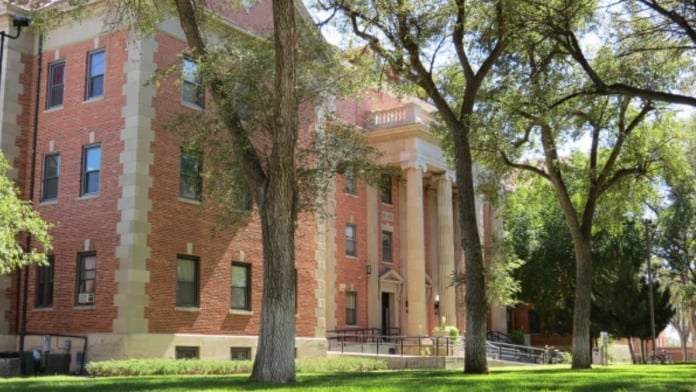
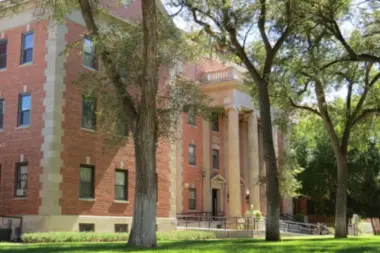
Other Forms of Payment
Self-pay involves paying for treatment out of your own pocket. You can use savings or credit, get a personal loan, or receive help from family and friends to fund your treatment. If you don't have insurance or your insurance plan doesn't cover a specific program, self-pay can help ensure you still get the care you need.
Financial aid can take many forms. Centers may have grants or scholarships available to clients who meet eligibility requirements. Programs that receive SAMHSA grants may have financial aid available for those who need treatment as well. Grants and scholarships can help you pai for treatment without having to repay.
Medicaid is a state based program that helps lower-income individuals and families pay for healthcare. Medicaid covers addiction treatment so those enrolled can use their coverage to pay for rehab. When a program accepts Medicaid the client often pays very little or nothing out of their own pocket.
Medicare is a federal program that provides health insurance for those 65 and older. It also serves people under 65 with chronic and disabling health challenges. To use Medicare for addiction treatment you need to find a program that accepts Medicare and is in network with your plan. Out of pocket costs and preauthorization requirements vary, so always check with your provider.
Addiction Treatments
Levels of Care
Sober Living Houses (SLHs), aka sober homes or halfway houses, are safe, substance-free, supportive living facilities for those recovering from substance abuse. Ideal for those who've just been through inpatient or outpatient treatment, SLHs are supervised environments with rules that support sobriety, such as curfews, shared chores, and therapeutic meetings. Residents are also often trained on life skills and coping skills to make it easier to transition into society. SLHs also provide a strong sense of community that can lead to the kind of deep and lasting connections with other sober individuals that supports a new, healthy lifestyle.
Residential treatment programs are those that offer housing and meals in addition to substance abuse treatment. Rehab facilities that offer residential treatment allow patients to focus solely on recovery, in an environment totally separate from their lives. Some rehab centers specialize in short-term residential treatment (a few days to a week or two), while others solely provide treatment on a long-term basis (several weeks to months). Some offer both, and tailor treatment to the patient's individual requirements.
Completing a drug or alcohol rehab program shouldn't spell the end of substance abuse treatment. Aftercare involves making a sustainable plan for recovery, including ongoing support. This can include sober living arrangements like halfway houses, career counseling, and setting a patient up with community programs like Alcoholics Anonymous (AA) or Narcotics Anonymous (NA).
Treatments
The goal of treatment for alcoholism is abstinence. Those with poor social support, poor motivation, or psychiatric disorders tend to relapse within a few years of treatment. For these people, success is measured by longer periods of abstinence, reduced use of alcohol, better health, and improved social functioning. Recovery and Maintenance are usually based on 12 step programs and AA meetings.
Professional services are often necessary to recover from addiction. Drug rehab in Colorado provides the expert services needed to address the complex issues of addiction and help individuals start their recovery journey.
Many of those suffering from addiction also suffer from mental or emotional illnesses like schizophrenia, bipolar disorder, depression, or anxiety disorders. Rehab and other substance abuse facilities treating those with a dual diagnosis or co-occurring disorder administer psychiatric treatment to address the person's mental health issue in addition to drug and alcohol rehabilitation.
Opioid rehabs specialize in supporting those recovering from opioid addiction. They treat those suffering from addiction to illegal opioids like heroin, as well as prescription drugs like oxycodone. These centers typically combine both physical as well as mental and emotional support to help stop addiction. Physical support often includes medical detox and subsequent medical support (including medication), and mental support includes in-depth therapy to address the underlying causes of addiction.
Substance rehabs focus on helping individuals recover from substance abuse, including alcohol and drug addiction (both illegal and prescription drugs). They often include the opportunity to engage in both individual as well as group therapy.
Programs
Adult rehab programs include therapies tailored to each client's specific needs, goals, and recovery progress. They are tailored to the specific challenges adult clients may face, including family and work pressures and commitments. From inpatient and residential treatment to various levels of outpatient services, there are many options available. Some facilities also help adults work through co-occurring conditions, like anxiety, that can accompany addiction.
Young adulthood can be an exciting, yet difficult, time of transition. Individuals in their late teens to mid-20s face unique stressors related to school, jobs, families, and social circles, which can lead to a rise in substance use. Rehab centers with dedicated young adult programs will include activities and amenities that cater to this age group, with an emphasis on specialized counseling, peer socialization, and ongoing aftercare.
Clinical Services
Whether a marriage or other committed relationship, an intimate partnership is one of the most important aspects of a person's life. Drug and alcohol addiction affects both members of a couple in deep and meaningful ways, as does rehab and recovery. Couples therapy and other couples-focused treatment programs are significant parts of exploring triggers of addiction, as well as learning how to build healthy patterns to support ongoing sobriety.
Research clearly demonstrates that recovery is far more successful and sustainable when loved ones like family members participate in rehab and substance abuse treatment. Genetic factors may be at play when it comes to drug and alcohol addiction, as well as mental health issues. Family dynamics often play a critical role in addiction triggers, and if properly educated, family members can be a strong source of support when it comes to rehabilitation.
Group therapy is any therapeutic work that happens in a group (not one-on-one). There are a number of different group therapy modalities, including support groups, experiential therapy, psycho-education, and more. Group therapy involves treatment as well as processing interaction between group members.
In individual therapy, a patient meets one-on-one with a trained psychologist or counselor. Therapy is a pivotal part of effective substance abuse treatment, as it often covers root causes of addiction, including challenges faced by the patient in their social, family, and work/school life.
Life skills trainings involve all the skills a person must have in order to function successfully in the world. These include time management, career guidance, money management, and effective communication. Truly successful addiction recovery is based on the ability to not only live substance-free, but to thrive. Life skills teaches the practical necessities of functioning in society, which sets clients up for success in life, and therefore sobriety.
Staff
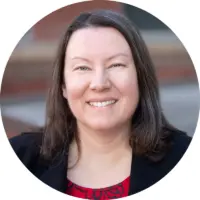
Britta Fisher
President and CEO
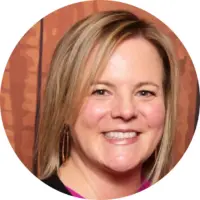
Cathy Alderman
Chief Communications and Public Policy Officer

Pete Stoller
Chief Financial Officer
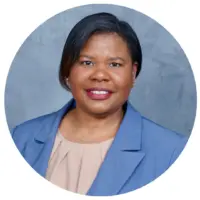
Lizz Jackson
Equity and Administrative Executive
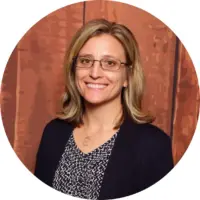
Lisa Thompson
Chief Program Officer
Contact Information
30999 County Road 15
Las Animas, CO 81054
